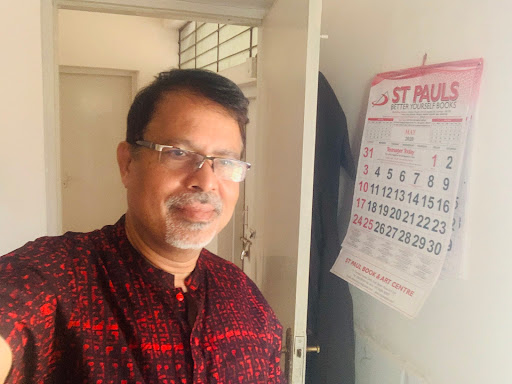The speaker presented on the minoritic-capuchin reflection on manual work from the origins of the Order until the conciliar reform.
- The defense of the contemplative dimension, the connoted identity of religious life, the safeguarding of intellectual work, presupposed as indispensable for the fulfillment of the ecclesial mission, and the mere tolerance of manual work, a useful antidote for the idleness of the bothers not dedicated to prayer or to evangelization
- inversion of the tendency that the friar worker priests and the small fraternities produced following 2nd world war.
- the attribution of purely missionary value to employed work, with the discovery, the rediscovery of work activity that shares with the subordinate classes as theological locus finalized with reappropriation of the original franciscan identity.
- contribution developed by the institutes of Franciscan women from the end of XVIII century....the shelving of poverty, lived as a dressing, substituted with the practice of hard work and professional commitment in just the same way as the poor classes
Part I A. In Defense of Otium:
- from XIV to XVIII centuries conviction dominates that manual work serves only to defeat the idleness of the brothers who are not equipped with the supernatural gifts of contemplation, prophecy or intellectual ability.
- The concession of an excessive space for manual work, sacrificing the activities considered more consonant with the state of perfection, prayer and evangelization, risks turning the identity of religious life upside down....
- most illlunminated and most holy fathers recognized that living from one's own effort is a thing of perfection, not however common to all, as one can note from the times of St. Francis, in which the whole of the religion never lived from work; and they didn't want that it should be something innate. it was enough to live begging. if someone then should want to live from his own work, he can do so....with obedience. but not all should be made to do manual work....
B. In defense of the right to evangelize: in reality, the theme of economic remuneration for the service of evangelization offered by religious raised an even deeper problem than the simple financial question.
According to the Franciscans of the modern age, the mendicant identity that foresees exxpropriation and therefore the obligation to provide for one's own subsistence by work cannot exlcude that apostolic identity, which guarantees them the right to share in the ecclesial mission, right to belong to the church not only as witnesses to the evangelical life but also as heralds of the kingdom.
Manual work therefore does not possess any religious or missionary significance. Manual work carries out a merely social function: acting of the bonding of the common life and fostering for the individual an ascesis oriented to reinforcing the virute of humility.
C. The Crisis of Otium: The excessive commitment to manual activity to which the capuchins are subject does not have any value against idleness; on the contrary, feeding into excitement, it takes time and energy from religious that could be committed, with much more spiritual profit, to ecclesial service.
In truth, the idleness of religious was subject to critique coming not only from outside of the friary walls, but also from within.
TheWAY OF THE WORKER, SCHOOL OF THE GOSPEL: Manual work, from being an impediment to mission, thus comes to be considered the engine of a new evangelization, a workshop for the renewal of religious and ecclesial life.
The true religious life is not apart from the public and hidden in the privacy of friaries, but that which born from participation in the life of labour, from contact with the problems suffered in real work.

No comments:
Post a Comment